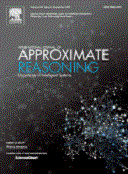| |
||||||
| 30 November – 2 December 2016, Da Nang, Vietnam | ||||||
- The first version of IUKM 2016 Program is HERE.
- In addition to the main technical program, IUKM 2016 also features the following three tutorials.
-
Thierry Denoeux (Universite de Technologie de Compiegne, FRANCE)
Title: Classification and Clustering using Belief Functions
Time: 9:30 - 12:00, November 29, 2016.
The Dempster-Shafer theory of belief function is a formal framework for modeling and reasoning with uncertainty. Different supervised and unsupervised learning algorithms based on belief functions are presented. In supervised classification, belief functions can be constructed based on distances to nearest neighbors or prototypes, and the classifier can be trained by minimizing a cost function. For clustering, we introduce the notion of credal partition, which extends hard, fuzzy, possibilistic and rough partitions. In a credal partition, cluster membership uncertainty is represented by belief functions. We present different algorithms for learning a credal parititon from dissimilarity or attribute data. These algorithms have been coded in the R package evclust publicly available from CRAN.
Bio
Thierry Denoeux is a Full Professor (Exceptional Class) with the Department of Information Processing Engineering at the Universite de Technologie de Compiegne (UTC), France. His research interests concern the management of uncertainty in intelligent systems. His main contributions are in the theory of belief functions with applications to pattern recognition, data mining and information fusion. He has published more than 200 journal and conference papers in this area. He is the Editor-in-Chief of the International Journal of Approximate Reasoning, and an Associate Editor of several journals including Fuzzy Sets and Systems and the International Journal of Uncertainty, Fuzziness and Knowledge-Based Systems (IJUFKS).
-
Son H. Nguyen (Warsaw University, POLAND)
Title: Rough Set Approach to Data Science
Time: 14:00 - 16:30, November 29, 2016.
Rough set theory was invented by Professor Zdzislaw Pawlak in 1982 as a tool for dealing with imperfect knowledge, in particular with vague concepts. Rough set theory has attracted attention of many researchers and practitioners all over world, who have contributed essentially to its development and applications. Rough set theory has some overlaps with other methods of data analysis, e.g., statistics, cluster analysis, fuzzy sets, evidence theory and other but it can be viewed in its own rights as an independent discipline. The rough set approach seems to be of fundamental importance to AI and cognitive sciences, especially in the areas of machine learning, knowledge acquisition, decision analysis, knowledge discovery from databases, expert systems, inductive reasoning and pattern recognition. It seems of particular importance to decision support systems and data mining. In this tutorial the foundation of rough set theory as well as the recent applications in data science and advanced analytics including theory, models and methods for data, computing with data, tool evaluation, multidisciplinary investigations, and semantic data analysis.
Bio
Hung Son Nguyen is professor at Warsaw University and a member of International Rough Set society. His main research interests are fundamentals and applications of Rough set theory, data mining, text mining, bioinformatics, intelligent multiagent systems, soft computing, pattern recognition. On these topics he has published more than 140 research papers in edited books, international journals and conferences. Dr Hung Son Nguyen is a member of the Editorial Board of three international journals, i.e., "Transaction on Rough Sets", "Data mining and Knowledge Discovery" (from 2005-2008) and "ERCIM News" and the Manager Editor of "Fundamenta Informaticea". He has served as a program co-Chair of RSCTC'06, JRS'2012 and WI'2014, as a PC member of various other conferences including PKDD, PAKDD, AAMAS, RSCTC, RSFDGrC, RSKT, etc., and as a reviewer of many other journals including "Data minining and Knowledge Discovery", "Transaction on Rough Sets", "Fundamenta Informaticea", "Journal Of Information Science And Engineering", "European Journal of Operational Research", "International Journal of Uncertainty, Fuzziness and Knowledge-Based Systems", "Pattern Recognition Letters", "Data and Knowledge Engineering", "Information Science".
-
Khoat Than (Hanoi University of Science and Technology, VIETNAM)
Title: Probabilistic Topic Modeling for Discovering Hidden Semantics from Massive Data
Time: 15:00 - 17:30, November 30, 2016.
Humans are excellent at learning from texts, and making inference on new observations based on his/her knowledge. The ability to reason correctly from little and noisy information is one of the long-standing mysteries that neuroscientists have been trying to understand. It motivates researchers in Artificial Intelligence to make an intelligent computer that can mimic human abilities and behaviors. In particular, the development of algorithms that enables computers to automatically process texts and natural languages has always been one of the most challenges.
Such algorithms are even more necessary in the era of "Big Data". A large amount of valuable information are put on the web everyday, which are in various forms including news, blogs, images, music, videos, opinions, links, etc. The needs of intelligent algorithms to manage, explore, and discover new knowledge from those huge data sources are increasingly arising. Hence a significant progress in the development of intelligent algorithms promises to have a strong impact on various applications ranging from information retrieval, recommendation systems, to computational social science, bioinformatics, forensics, history, and politics.
In this tutorial, I will discuss one of the most efficient ways to fulfill those needs, which is probabilistic topic modeling. I will discuss from the very basic concepts, basic models, to some challenges and recent advances.Bio
Khoat Than is currently the Head of Laboratory of Knowledge and Data Engineering, School of Information and Communication Technology, Hanoi University of Science and Technology. He received Ph.D. (2013) from Japan Advanced Institute of Science and Technology. His recent research interests include topic modeling, semantic embeddings, stochastic optimization, machine learning, big data. His recent research has been receiving fundings from various sources, including NAFOSTED and AFOSR.






